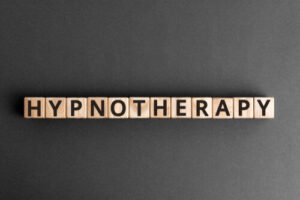Feeling Worse after Hypnotherapy: Understanding the Potential Negative Effects

Hypnotherapy has gained significant popularity as a potential solution to various personal issues and challenges. From overcoming phobias to managing anxiety, it offers a promising alternative for those seeking transformation. However, could there be a side-effect to this seemingly miraculous therapy? In certain cases, individuals have reported they may feel worse after hypnotherapy.
This article delves into this puzzling phenomenon, exploring its potential reasons and shedding light on this lesser-known aspect of hypnotherapy’s impact.
Common Reasons for Feeling Worse After Hypnotherapy Session
Feeling worse after a hypnotherapy session can be concerning for many clients. Understanding the common reasons behind this reaction to navigate the post-therapy experience better and maximize the benefits of hypnotherapy is important.
Common Reasons for Feeling Worse After Hypnosis Session:
- Emotional Release: Hypnotherapy often taps into deep-seated emotions and negative memories in the subconscious mind. The release of these emotions can initially feel overwhelming, leading to a temporary intensification of uncomfortable feelings.
- Processing of Subconscious Material: The therapy sessions can bring subconscious issues to the surface, which the conscious mind may struggle to process immediately, resulting in feelings of distress or anxiety.
- Adjustment to Mental Shifts: Hypnotherapy treatments can induce significant shifts in thought patterns and attitudes. Adjusting to these changes can sometimes manifest as stress or confusion.
- Expectation vs. Reality: Clients may enter hypnotherapy with high expectations of immediate relief. When these expectations are not met or the process takes longer, it can lead to feelings of disappointment or skepticism.
- Revisiting Traumatic Experiences: In cases where hypnotherapy addresses past trauma, revisiting these experiences can be painful before the healing process begins.
- Physical Reactions: Some clients might experience side effects such as light-headedness or fatigue after a session, contributing to unease.
- Individual Differences in Response: Each person’s response to hypnotherapy is unique; some may experience more intense emotional or physical reactions than others.
The Emotional Release: Processing Subconscious Material
Emotional release during hypnotherapy is a critical aspect of the healing process, often involving the processing of deep-seated subconscious material. While beneficial in the long term, this release can sometimes be intense and unexpected for clients.
The Emotional Release: Processing Subconscious Material:
- Accessing the Subconscious: Hypnotherapy allows individuals to access their subconscious mind, revealing hidden emotions, memories, and experiences that are usually inaccessible in a conscious state.
- Surface of Repressed Emotions: During hypnosis, repressed emotions related to past traumas or experiences may surface. This can lead to a sudden and intense release of feelings such as sadness, anger, or fear.
- Cathartic Experience: This release, although potentially overwhelming, is cathartic. It allows individuals to confront and process these emotions, leading to emotional healing and resolution.
- Physical Symptoms: Emotional release can also manifest physically, with clients experiencing symptoms like crying, shaking, or a sensation of light-headedness during or after the session.
- Increased Self-Awareness: Clients often report increased self-awareness and insight into their emotional state and behavior patterns post-session.
- Initial Intensification of Feelings: It’s not uncommon for clients to feel emotionally drained or worse immediately after the session as their mind and body adjust to the emotional release.
- Guidance from the Hypnotherapist: A skilled hypnotherapist can guide clients through this process, ensuring they feel safe and supported while navigating these intense emotions.
Adjusting to Changes: The Transition Period Post-Hypnotherapy

The period following a hypnotherapy session is often marked by a transition phase, where clients adjust to the changes brought about by the last therapy session. This adjustment period is a crucial part of the healing process, as it involves integrating new insights and emotional shifts into one’s daily life.
Adjusting to Changes: The Transition Period Post-Hypnotherapy:
- Acclimatizing to New Perspectives: Post-hypnotherapy, clients may view situations, relationships, or personal issues from new perspectives. This shift can require adjustment as old patterns and beliefs replace new ones.
- Emotional Fluctuations: It’s common to experience a range of emotions during this transition. Clients might feel uplifted one moment and unsettled the next as they process and integrate their emotional releases.
- Changes in Behavior and Thought Patterns: Many hypnotherapy treatments can induce changes in behavior and thought patterns. Adapting to these changes can be challenging but is often necessary for personal growth and healing.
- Physical Responses: The body might also respond to this transition. Some individuals report sleep disorders, appetite, or energy levels as they adjust to their post-hypnotherapy state.
- Increased Self-Awareness: This period often brings about heightened self-awareness, making clients more attuned to their needs, desires, and boundaries.
- Need for Support: Support from friends, family, or a therapist can be valuable during this time. Discussing experiences and feelings can help in understanding and navigating the changes.
- Importance of Self-Care: Engaging in self-care practices such as rest, nourishment, and deep relaxation techniques can aid in managing stress and ensuring a smoother transition.
The Role of Expectations in Hypnotherapy Outcomes
Expectations play a pivotal role in shaping the outcomes of hypnotherapy. The mindset underlying clients’ emotions and anticipations can significantly influence their therapeutic journey and the effectiveness of the treatment.
The Role of Expectations in Hypnotherapy Outcomes:
- Influencing Perception of Success: A client’s expectations about the efficacy of hypnotherapy can impact their perception of its success. Positive expectations can lead to a more optimistic outlook and receptiveness to the therapy, enhancing its effectiveness.
- Setting Realistic Goals: Clients with realistic and achievable goals are more likely to feel satisfied with the outcome. Overly ambitious or vague expectations can lead to disappointment, even if significant progress is made.
- Expectation-Induced Motivation: When clients expect positive changes, they are often more motivated to actively engage in the therapeutic process actively, contributing to better outcomes.
- Influence on Emotional and Psychological State: Expectations can affect a client’s emotional and psychological state during and after the therapy. Positive expectations can enhance relaxation and openness, which is essential for effective hypnosis.
- Impact on Compliance and Commitment: Clients with a strong belief in the process tend to be more compliant with therapeutic instructions and committed to the treatment plan, which is crucial for success.
- Managing Expectations: Therapists need to help clients set and manage realistic expectations. Clear communication about what hypnotherapy can and cannot do is essential.
- Expectation of Immediate Results: Some clients may expect immediate and dramatic results. Understanding that hypnotherapy is a process that can require multiple sessions and time to see significant changes is important.
When to Seek Further Assistance: Signs to Watch For

Recognizing when to seek further assistance after hypnotherapy is crucial for ensuring effective and continuous mental health support. Awareness of certain signs and symptoms that indicate the person may need additional help can guide clients in making informed decisions about their ongoing care.
When to Seek Further Assistance: Signs to Watch For:
- Persisting or Worsening Symptoms: If symptoms that prompted hypnotherapy persist or worsen, it’s a clear sign that further assistance may be required. This includes ongoing anxiety, depression, or other mental health issues.
- Emergence of New Symptoms: The development of new emotional responses or psychological symptoms post-hypnotherapy, such as increased anxiety, mood swings, or unexplained fears, should not be overlooked.
- Difficulty Coping with Daily Life: If a client finds it increasingly challenging to manage everyday tasks or experiences a significant drop in functioning, additional support might be necessary.
- Physical Symptoms: Physical manifestations, such as persistent sleep disturbances, changes in appetite, or unexplained physical discomfort, can indicate underlying emotional or mental health issues.
- Overwhelming Emotional Release: While emotional release can be part of the healing process, seeking further professional guidance is advisable if it feels overwhelming or unmanageable.
- Reliance on Hypnotherapy Alone: If a client becomes overly reliant on hypnotherapy without addressing underlying issues or without engaging in complementary therapies, this could signal the need for a more integrated approach.
- Feedback from Friends and Family: Sometimes, friends and family may notice changes that the individual doesn’t. Their observations can be a valuable indicator that additional support might be beneficial.
Coping Strategies and Self-Care After Hypnotherapy Sessions
Effectively managing the aftermath of hypnotherapy sessions is vital for clients to maximize benefits and maintain well-being. Coping strategies and self-care are integral to this process, facilitating emotional and psychological balance.
Coping Strategies and Self-Care After Hypnotherapy Sessions:
- Mindfulness and Relaxation Techniques: Mindfulness or meditation can help grind and center oneself, especially after intense sessions. Relaxation techniques like deep breathing also aid in managing any stress or anxiety.
- Journaling: Writing down thoughts, feelings, and experiences after hypnotherapy can offer insights into emotional patterns and serve as a therapeutic outlet for processing subconscious material.
- Physical Activity: Engaging in gentle physical activities, such as walking or yoga, can help release tension and improve mood, fostering a sense of well-being.
- Adequate Rest: Ensuring sufficient sleep and rest is crucial, as the body and mind may need extra time to recover and integrate the experiences from the hypnotherapy sessions.
- Healthy Eating: A balanced diet can support physical health, closely linked to emotional and mental well-being. Proper nutrition can also enhance the body’s ability to cope with stress.
- Seeking Social Support: Discussing experiences with trusted friends, family, or a support group can provide comfort and reassurance, particularly if dealing with challenging emotions.
- Professional Follow-Up: Scheduling follow-up sessions with the hypnotherapist or seeking additional counseling can provide ongoing support and guidance.
In conclusion, it is important to understand that while hypnotherapy may offer potential benefits for many individuals, it is not a one-size-fits-all solution. It is not uncommon for some individuals to experience a temporary worsening of symptoms, negative thoughts, or feelings after undergoing hypnotherapy sessions. This response can occur due to various factors, such as the nature of the underlying issue or a deeper emotional release during the therapy. However, it is crucial to communicate these concerns with your hypnotherapist to ensure they can provide the necessary support and guidance throughout the process. Remember, everyone’s experience with hypnotherapy is unique, and it is essential to approach each session with an open mind and realistic expectations to achieve the best possible outcome for your specific needs.
References
Healthline – Depression and Hypnotherapy
https://www.healthline.com/health/depression/hypnotherapy
Hypnotherapy Directory – 5 Tips to Help You Get the Most from Your Hypnotherapy
https://www.hypnotherapy-directory.org.uk/memberarticles/5-tips-to-help-you-get-the-most-from-your-hypnotherapy
PubMed Central – Hypnotherapy in the Management of Anxiety and Stress
https://www.ncbi.nlm.nih.gov/pmc/articles/PMC8859690/
Mayo Clinic – About Hypnosis as a Medical Procedure
https://www.mayoclinic.org/tests-procedures/hypnosis/about/pac-20394405
Hypnotherapists Register – Find a Hypnotherapist (Profile ID: 1077)
https://www.hypnotherapists.org.uk/therapist-finder/view/plid/1077/


